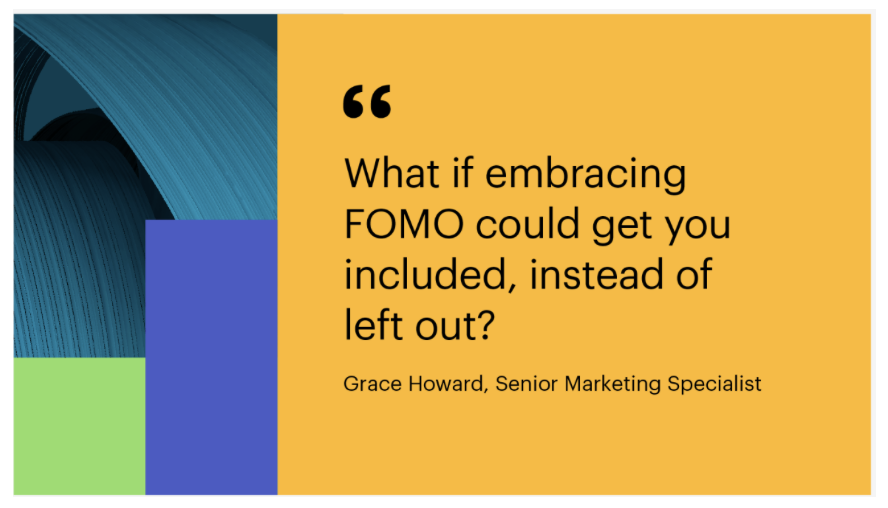Welcome to the third installment of our ABM Crash Course series. In part one we covered launching successful display ad campaigns, and in part two we discussed delivering a personalized experience. In this post, we’re going to dive deeper into ABM campaign success and discuss sales activation. Let’s get right into the conversation and learn how to equip sales and marketing teams with the tools, techniques, and insights to move the needle on pipeline.
What is sales activation?
Sales activation is the who, what, and why insights that sales reps use for a more effective and automated approach to reaching conversions. Think of sales activation as the missing link between seamless sales and marketing alignment, that boosts communication and impacts pipeline. True sales activation is more than just an alert, it’s a comprehensive view of everything you need to know about an account and how to act upon those insights.
Why sales activation?
Sales teams don’t always have the bandwidth to pursue a large total addressable market. Large account lists make it difficult to prioritize which accounts are ready to buy, oftentimes leaving active buyers hidden in the funnel. Missing these opportunities leaves a lot of money on the table that otherwise could have been nurtured into a conversion.
With sales activation, you are equipping the sales team with the information and tools necessary to generate more revenue. These valuable insights create a more cohesive sales and marketing strategy that amplifies conversions and unifies goals and reporting.
Consider this when looking for a sales activation tool… find one that allows both sales and marketing teams to work together to plan messaging tracks, agree on intent-based campaign triggers, and reference the same reporting.
Step 1: Unify goals and reporting
The first step to sales activation is establishing clear common goals within your sales and marketing teams, in addition to the KPIs you want to report on. Sales and marketing alignment is common ABM jargon, however, its importance is no overstatement when it comes to sales activation. When sales and marketing teams have the same field of view, same goals, and are reporting on the same metrics, execution on sales and marketing initiatives becomes seamless.
Create custom CRM dashboards
Using an ABM platform, you can set up a dynamic dashboard within your CRM. With Salesforce and Salesloft integrations, you can roll out your ABM analytics module with real-time account insights. This provides a more cohesive strategy by keeping everyone on the same page, even on different platforms.
Step 2: Prioritize and segment your total addressable market (TAM)
What is your TAM?
Your total addressable market is all of the accounts you can reach and engage within your pipeline.
Account organization
You know what your TAM is, but now you need to break down those accounts and segment them into their respective groupings. This sounds like a lot of work, and you’d be right if we did this manually, but with an ABM platform, you can easily parse through and segment accounts automatically. This saves valuable time and gives sales and marketing the same field of view so more time can be spent engaging with the highest-fit accounts in pipeline.
Step 3: Have the rights tools
Sales activation platform
With the right ABM platform, sales activation is so much more than just an alert notifying sales about a hot account. It’s the ability to make informative decisions and automatically reach surging accounts with your marketing automation software. By providing your sales team with the tools to properly prioritize accounts and relevant content for outreach, you will create a more efficient and effective sales process.
Equip your sales team with
- Intent-based marketing campaigns and sales plays
- 1:1 assets for each account
- Automated Lead-to-Account Matching
Sales activation gets your team ahead of the competition and allows them to reach in-demand buyers with the right messaging at the right time. When leveraged correctly and with a unified approach your sales activation strategy will keep your organization one step ahead of the competition.
Step 4: Activate sales plays
Intent-based sales plays
- Orchestrating account prioritization for sales outbound
If your company has a large total addressable market you may benefit by implementing the FIRE data strategy to boost your SDR team’s efficiency. FIRE stands for Fit, Intent, Recency, and Engagement. With this strategy, you’ll sharpen your focus beyond your ICP and target in-demand accounts throughout the funnel.
- Activating relevant sales conversations with intent signals
If you want to take advantage of intent signals deeper in the funnel, you can monitor intent topics related to your competitors. From there, flag interest in competitors and prepare appropriate sales plays. This empowers your sales teams to reach in-demand buyers with counter-claims and more appealing offers than the competition.
1:1 assets
Let’s take a look at some sales plays that your sales rep can reach accounts with following a surging account alert.
- 1:1 Landing Page
- Social
- Direct Mail
- Phone Call
Sales activation orchestration
With lead scoring, sales reps can get notified on surging accounts in your CRM. This gives the sales the information needed to engage with accounts on multiple channels, or pick which channel makes the most sense to engage with the account based on its position in the purchase journey.
Conclusion
Aligning your marketing and sales teams helps streamline sales and sets your ABM program up for successful sales activation. Remember sales activation doesn’t work without equipping sales with the right tools. Once your sales team has the right tools, they’re provided with the insights and content to engage with hot accounts and move the needle on the pipeline. Stay tuned for our next ABM Campaign Crash Course as we dive into the intent data that supercharges successful ABM programs.





